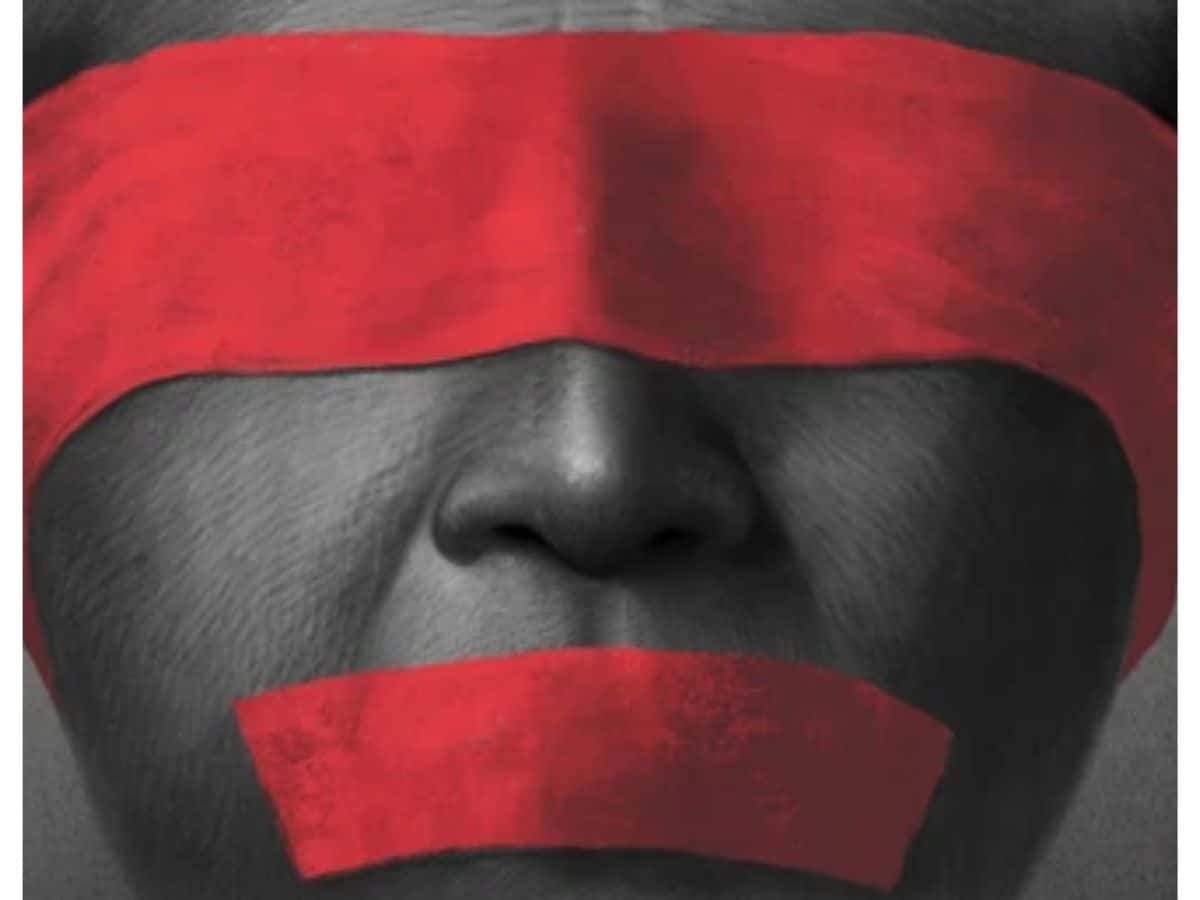
India’s freedom of expression is in a ‘crisis’. The world’s largest democracy has been ranked below war-torn Palestine and restive Democratic Republic of Congo, ranking at 123, according to the Global Expression Report by Article 19.
Article 19 is an international human rights organisation to ‘defend and promote freedom of expression and information’ worldwide.
As per the report, since 2014, when Narendra Modi became Prime Minister of India, India faced a rapid decline in free expression. The situation has even worsened significantly, with a record number of journalists facing criminal charges, arrests under terror laws like the Unlawful Activities (Prevention) Act (UAPA ) and Public Safety Act (PSA), along with some independent news outlets being targeted with raids over alleged “fraud or tax evasion”.
India’s freedom of expression in crisis
The report highlights that 39 countries out of the studied 161 are ‘in crisis’, 24 are highly restricted, 25 are restricted, and 35 are less restricted and open.
The report classified the population of people living in crisis-hit countries rose to 53 per cent in 2023 due to India’s fall from a highly restricted country to one in crisis. India’s expression score has plummeted 35 points since 2014.
The report stressed that the violations of freedom often occur under the guise of public safety, morality, or national security, gradually eroding the space for open discourse.
However, the report also pointed out positive developments in Brazil, where improvements in journalist safety and free expression have led to a positive shift following the defeat of former President Jair Bolsonaro.
The executive director of Article 19, Quinn McKew has flagged his concern over this global trend, stating, “Never before in the last two decades have so many individuals been deprived of the advantages of open societies, including the freedom to voice opinions, access unbiased media, and participate in fair and transparent elections.”
Press freedom in India
Pertinently, the report titled ‘Crossing The Line: 18th Lok Sabha Elections and Free Speech In India’, published on May 1, has also revealed that independent journalists, academics, students, YouTubers, and ordinary citizens, have been subjected to harassment, attacks, arrests, and censorship.
The report revealed shocking cases of ordinary citizens facing legal action and threats after voicing their opinions on communal issues particularly where victims are Muslims.
A Kashmiri journalist Fahad Shah was jailed for over 600 days due to allegations of publishing “anti-national content” and “glorifying terrorism”.
Delhi Police’s special cell on October 3 2023, conducted raids at 30 premises connected with the online portal NewsClick as well as its journalists’ houses, triggering outrage against the action among scribes.
The houses of former and current employees of NewsClick were also raided. They were questioned regarding their past and current news reports including the COVID-19 coverage and farmers’ protests.
A digital news portal National Dastak said on April 8, that the Union government has asked YouTube to remove its channel from the platform. With over 9.4 million subscribers, the channel describes itself as a voice for Dalits, Adivasis, farmers, women, and other marginalised groups.
Another Kashmiri journalist Aasif Sultan was arrested under UAPA in September 2018 when he was working for the local magazine Kashmir Narrator for allegedly his links to a banned militant group. However, in April 2022, the Jammu and Kashmir High Court ruled that investigative agencies “failed to establish his links with any militant group” and granted him bail.
Kerala journalist Siddique Kappan working for the Azhimukham was arrested in 2020 when he was on his way to meet the victim of the Hathras rape case (a 19-year-old Dalit girl who was gang-raped in Uttar Pradesh and lost her life two weeks later). His was accused of having links with the banned organisation Popular Front of India (PFI). However, Kappan was released from Lucknow district jail in February 2023 after authorities said that there was a delay in “verification of the sureties”.
Similarly, Gulfisha Fatima, a Muslim student activist is still languishing in Jail. She was arrested by the Delhi Police on April 9, 2020, for her alleged involvement in the Jaffrabad protest against the Citizenship Amendment Act (CAA). She was charged under multiple sections of the Indian Penal Code (IPC), including rioting and assaulting a public servant.
The evidence of the shrinking space for free expression in India has promoted concerns about the state, with many questions of how long the country can maintain its democratic status if it continues to undermine freedom of expression.
